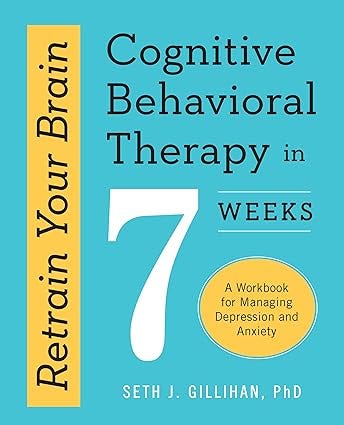
## Understanding Depression
Depression is a mental health condition that affects millions of people worldwide. It is characterized by persistent feelings of sadness, hopelessness, and a lack of interest in activities. Understanding depression is crucial in order to effectively cope with its symptoms. Depression can be caused by various factors, including genetics, biological imbalances, and life events. It is important to remember that depression is a legitimate illness and not a personal weakness.
The Importance of Coping Mechanisms for Depression
Having effective coping mechanisms is essential for managing the symptoms of depression. Coping mechanisms are strategies that individuals use to deal with stressful situations. They help to reduce the negative impact of depression and improve overall well-being. Coping mechanisms can vary from person to person, as what works for one individual may not work for another. It is important to find coping mechanisms that are personally effective and sustainable.
Common Unhealthy Coping Mechanisms for Depression
Unfortunately, many individuals with depression resort to unhealthy coping mechanisms that provide temporary relief but ultimately exacerbate the condition. Some common unhealthy coping mechanisms for depression include substance abuse, excessive alcohol consumption, self-harm, and isolation. These behaviors may provide temporary relief or distraction, but they do not address the root causes of depression and can lead to further negative consequences.
Identifying Effective Coping Mechanisms for Depression
Finding effective coping mechanisms for depression is a process of trial and error. It requires self-reflection, experimentation, and a willingness to try different strategies. Some individuals find solace in cognitive-behavioral therapy (CBT), which focuses on identifying and changing negative thought patterns. CBT can help individuals develop more positive and adaptive ways of thinking, leading to improved mood and functioning.
Self-Love Workbook for Women: Release Self-Doubt, Build Self-Compassion, and Embrace Who You Are

Cognitive Behavioral Therapy as a Coping Mechanism for Depression
Cognitive-behavioral therapy (CBT) is a widely recognized and evidence-based approach for managing depression. It involves working with a trained therapist to identify and challenge negative thought patterns and beliefs that contribute to depression. Through CBT, individuals learn to replace negative thoughts with more realistic and positive ones. This can lead to a significant reduction in depressive symptoms and an improved sense of well-being.
Mindfulness and Meditation for Managing Depression
Mindfulness and meditation have gained popularity as effective coping mechanisms for depression. These practices involve focusing one’s attention on the present moment and cultivating a non-judgmental awareness of thoughts and emotions. Mindfulness and meditation can help individuals develop a greater sense of self-awareness and acceptance, which can be particularly beneficial for managing depressive symptoms.
Exercise and Physical Activity as Coping Mechanisms for Depression
Engaging in regular physical activity and exercise is another powerful coping mechanism for depression. Exercise has been shown to release endorphins, which are natural mood-boosting chemicals in the brain. Additionally, physical activity can improve sleep quality, increase energy levels, and provide a sense of accomplishment. Incorporating exercise into one’s routine, such as going for walks, joining a fitness class, or participating in sports, can have significant positive effects on mood and overall well-being.

Building a Support System for Coping with Depression
Having a strong support system is crucial for coping with depression. Surrounding oneself with understanding and empathetic individuals can provide emotional support and a sense of belonging. Building a support system may involve reaching out to friends and family, joining support groups, or seeking professional help. Sharing experiences and feelings with trusted individuals can help alleviate the feelings of isolation that often accompany depression.
Seeking Professional Help for Depression
If coping mechanisms alone are not sufficient in managing depression, seeking professional help is highly recommended. Mental health professionals, such as psychologists or psychiatrists, can provide specialized guidance and treatment options tailored to an individual’s specific needs. They may recommend therapy, medication, or a combination of both. Seeking professional help does not indicate weakness or failure, but rather a proactive step towards finding effective coping strategies and improving overall mental well-being.
Lost Connections: Uncovering the Real Causes of Depression — and the Unexpected Solutions

Conclusion: Finding Strength through Effective Coping Mechanisms for Depression
In conclusion, coping with depression requires understanding the condition and developing effective strategies to manage its symptoms. Unhealthy coping mechanisms, such as substance abuse and isolation, should be avoided as they can worsen the condition. Instead, individuals should focus on identifying and implementing healthy coping mechanisms. Cognitive-behavioral therapy, mindfulness and meditation, exercise, and building a support system are all effective strategies for managing depression. It is important to remember that finding strength is possible, and seeking professional help is never a sign of weakness. With the right coping mechanisms and support, individuals can overcome the challenges of depression and live fulfilling lives.